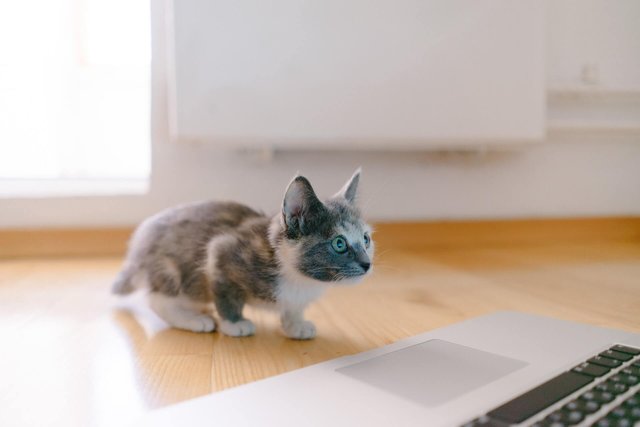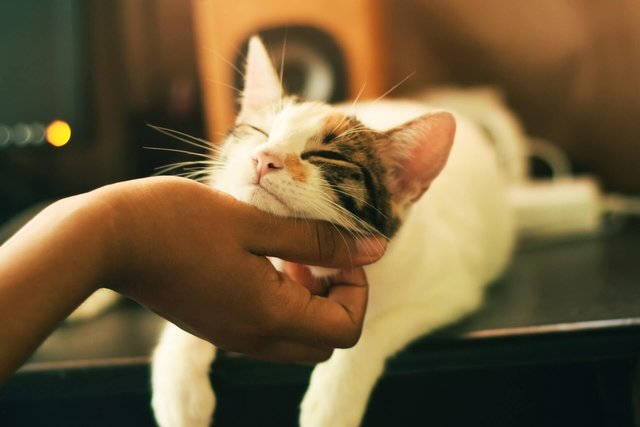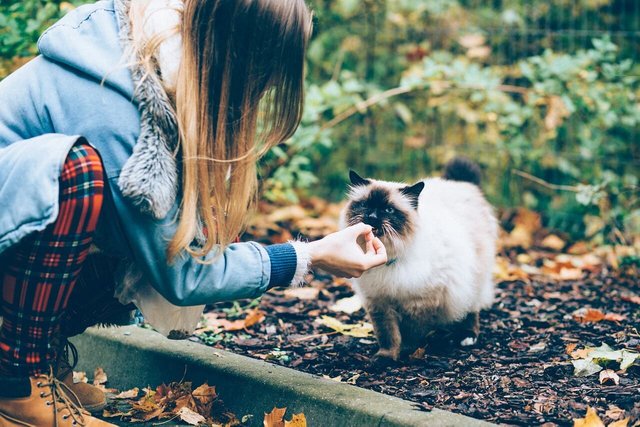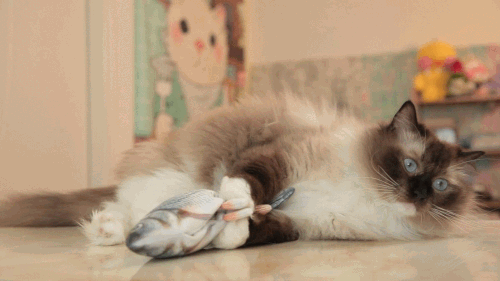My Cat Is Scared of People: Easing Your Cat’s Fears
Cats are cute and precious friends that accompany us throughout our lives. Living with a cat is a journey that will develop many behavioral habits depending on the type of guidance that you prescribe over your cat. Recognizing your cat’s personality and constructively assisting its weaker areas is part of the growth process. Cute kitties that seem too timid and afraid of people from a young age will grow to avoid human contact when they grow up if no steps of intervention are introduced. There are many factors that can also influence the general behavior of a cat such as introduction to a new environment, new house members and general sources of stress.

Kittens
Newly arrived kittens in their new homes will be expectedly cautious and fearful. For the first time, they have left the litter and embarked on a journey that is unknown. Characteristic behaviors of a scared kitten include hiding in enclosed spaces, alarmed yelling and sometimes hissing in defense. It doesn’t mean your cat is full of hateful emotion, they are scared and need to be comforted to feel at ease in their new home. Raising a kitten requires actions of purpose to introduce situations and behaviors that they need to be acclimated to. This will prepare them as they grow up to be calm and ready for life ahead of them, valuable life skills that makes life easier for all.
- Build an environment that’s cat safe:
Kittens arriving in their new home will often be overwhelmed by their surroundings. It’s best to restrict their area of access and activities to help them get used to their new residence. Going slowly is the best approach and will help convey actions of care and love over time. Peace and quiet is needed to help your cat settle in as loud noises and sudden movements will only agitate them, even instilling further emotions of fear in some cases. Maintain a safe distance and let your kitten come to you, provide enough food and water at a set location so they quickly learn where their meals will be.

- Social Opportunities:
As your cat settles into life at home, let them have opportunities to meet new kitty friends of different shapes and sizes. Meeting and safely interacting with other species is a great way to build up your cat’s confidence as they familiarize themselves with varying size, age, genders, sounds and smells. The world is big but a house cat has limited chance to explore, creating these opportunities relies on their owner.
- Meeting different people:
Cats may not class humans as a single species. Scent, appearance and demeanor create a profile for a cat to recognize and they will need have continuous experience in meeting different people. Visitors at home are a great way to increase social opportunity for your cat and human contact should be introduced from a young age. Over time, a cat will come to interact and become a judgment of character, deciding who they like and…Who they don’t like so much.

- Encourage and reward:
Cats try their best in different situations and should be encouraged in every situation. They may not understand your exact words due to missing cat subtitles but they will certainly feel emotions of praise and encouragement from the tone of your voice. Fuel you cats progress with play time and rewards so that they will feel guided towards putting more effort into target activities.
- Frequent interaction with your cat:
Living as a single cat at home is a lonely experience. Allowing your cat to have regular interaction at home will help them develop a deeper bond and confidence with humans. There are lots of way to have fun and enjoyable interactive session with your cat, you can even give them a head tickling massage. Aside from actively approaching your cat, the other side of building a mutual bond of trust relies on response. Specifically, your own response to them at home is important. Be sure to continuously respond to them in a sweet and pleasant voice to build a loving relationship with your pet.

Adult Cats
Cats living at home will show great bonds of love with their family members. They are familiar and will be in regular contact. If your cat is scared of visitors however, it may be due to their lack of human socializing from a very young age. This doesn’t mean that they can’t be accommodating to new visitors, you’ll have to actively encourage them to approach new people. Using encouraging words and treats or play activities to include visitors is a great way to break the ice and help them gradually feel at ease with new strangers. Over time, this may help them approach strangers that come to visit at home.
Here are a few things to try when people come over to visit:
- Tell your guests to remain calm and not to approach the cat in the first instance. Let your cat’s curious nature take over and wait for them to explore and approach your visitor. Remaining calm and avoiding direct staring at the cat will help to avoid any interpretation of intimidation.
- Use toys, food or treats to lure your cat out, eventually easing its fears. You may gradually steer these points of attention towards the guest as they feel comfortable to open a doorway of interaction.

- During interaction, let your guest know it’s best to squat or sit down to reduce their stature. Cats can easily feel intimidated and will flee from unknown towering figures. Reducing all forms of indirect intimidation is important and guests should quietly await the cat to make the first move, and of course welcome them with a smile and words of encouragement when the time’s right.
- Cats have short attention spans, they can be enthusiastic over something for a minute, the next they may walk away entirely. If your cat has had enough interaction with your visitor, don’t force it to stay. There will be plenty opportunity for new games and moments of interaction. Encourage them to come play again when they appear curious and ready once more.

Remember, never force your cat to approach and engage with guests. It may seem like a cute and fun way to introduce these two parties but doing so will only increase fear in your cat’s precious heart. Use patience and short moments of socialization to ease into a momentum of familiarty, it’s all about trust. Meow! 🐾
Visit - https://aipaws.com

 Steem
Steem  Twitter
Twitter  YouTube
YouTube
 Instagram
Instagram Pinterest
Pinterest Facebook
Facebook